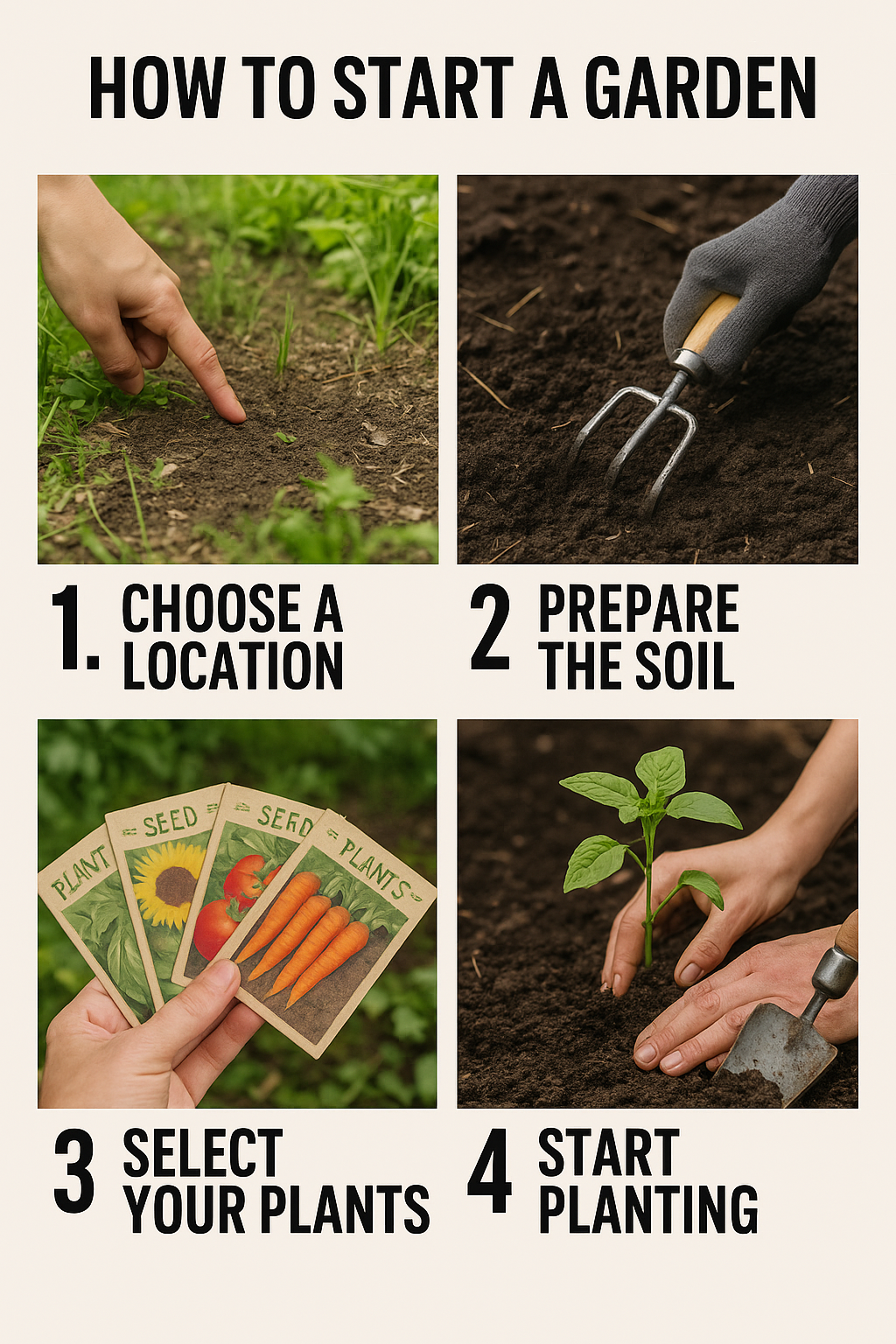Starting a garden from scratch might feel overwhelming, but with the right guidance and preparation, it becomes an enjoyable and fulfilling experience. Whether you have a backyard, balcony, or windowsill, this beginner’s guide will show you how to create a thriving garden from the ground up.
Why Gardening Is a Great Skill for Beginners
Gardening is not only therapeutic but also promotes healthy living and sustainability. It teaches patience, responsibility, and a deeper connection to nature. Plus, growing your own herbs or vegetables can save money and reduce your environmental impact.
1. Choose the Right Location
Select a spot that receives at least 6 hours of sunlight daily. Most vegetables and flowering plants need good light to grow. Consider proximity to a water source and accessibility for maintenance.
Tip: If outdoor space is limited, container gardening on a balcony or windowsill is a great alternative.
2. Understand Your Soil (or Container Medium)
Healthy soil is the foundation of a successful garden. If you’re using ground space:
- Test your soil’s pH and drainage.
- Enrich it with compost or organic matter.
For container gardening:
- Use high-quality potting mix (not garden soil).
- Ensure containers have drainage holes.
3. Choose the Right Plants for Your Climate
Research which plants grow well in your local USDA Plant Hardiness Zone. Beginners should start with easy-to-grow varieties like:
- Herbs: Basil, mint, parsley
- Vegetables: Lettuce, radishes, tomatoes
- Flowers: Marigolds, sunflowers, zinnias
4. Plan Your Layout
Sketch a simple garden layout based on space, plant height, and sunlight needs. Companion planting—placing compatible plants together—can improve growth and reduce pests.
5. Prepare and Plant
For in-ground gardens:
- Clear weeds and debris.
- Turn the soil and mix in compost.
For containers:
- Fill with potting mix and water lightly.
Plant seeds or seedlings according to spacing instructions on the seed packet or plant label.
6. Water Wisely
New gardens need consistent watering. Keep the soil moist but not soggy. Early mornings or late afternoons are the best times to water.
7. Maintain and Observe
- Mulch around plants to retain moisture and prevent weeds.
- Watch for pests or diseases.
- Prune, stake, and fertilize as needed.
8. Harvest and Enjoy
Harvest vegetables and herbs when they are ripe. Regular harvesting encourages continued production and keeps your garden looking neat.

For more beginner-friendly ideas, explore our guide on How to Grow Fresh Herbs in Your Kitchen.
Final Thoughts
Starting a garden from scratch is easier than it seems. With patience, attention, and the right techniques, anyone can grow their own plants—even with zero prior experience. Begin small, stay consistent, and enjoy every step of the journey.
To get started with quality gardening tools, check out this beginner-friendly garden tool kit on Amazon.
